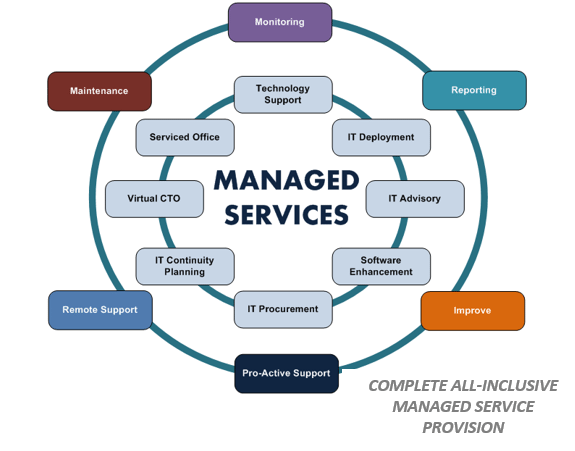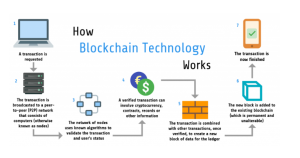
In today’s fast-paced digital world, businesses are increasingly relying on technology to streamline their operations and improve efficiency. However, managing and maintaining an IT infrastructure can be complex and time-consuming for businesses, especially those without dedicated IT teams. This is where managed IT services come into play. Managed IT services offer businesses the opportunity to outsource their IT needs to a team of experts, allowing them to focus on their core competencies while ensuring smooth IT operations.
Benefits of Managed IT Services
1. Cost Savings – One of the significant benefits of managed IT services is cost savings. By outsourcing IT responsibilities, businesses can avoid the expenses associated with hiring, training, and retaining an in-house IT team. Managed IT services often operate on a subscription or pay-as-you-go model, allowing businesses to only pay for the services they require. Additionally, by preventing IT issues through proactive monitoring and maintenance, businesses can avoid costly downtime and potential data breaches.
2. Expertise and Skillset – Managed IT services provide access to a highly skilled team of IT professionals. These professionals possess extensive knowledge and experience in various IT areas, including network management, cybersecurity, cloud computing, and data backup. By leveraging their expertise, businesses can benefit from proactive IT solutions, efficient troubleshooting, and implementation of best practices.
3. Scalability and Flexibility – As businesses grow, their IT needs evolve. Managed IT services offer scalability and flexibility, allowing businesses to easily scale up or down their IT services based on their requirements. Whether it’s adding new users, expanding network capabilities, or implementing new software, managed IT services can quickly adapt to business changes without disruptions.
Services Offered by Managed IT Providers
1. Network Monitoring and Management – Managed IT services providers monitor and manage the client’s networks, ensuring optimal performance, identifying potential issues, and resolving them before they become major problems. This includes managing firewalls, routers, switches, and other network devices. By constantly monitoring network traffic and performance, managed IT services providers can proactively address any network-related issues, minimizing downtime.
2. Cybersecurity – With the increasing frequency and sophistication of cyber threats, implementing robust cybersecurity measures is crucial for businesses. Managed IT services providers offer comprehensive cybersecurity solutions, including antivirus, firewall, intrusion detection and prevention systems, data encryption, and regular security audits. By continuously monitoring for potential security breaches and applying the latest security patches and updates, managed IT services providers help businesses protect their sensitive data and prevent unauthorized access.
3. Data Backup and Recovery – Data loss can have severe consequences for businesses, ranging from financial losses to reputational damage. Managed IT services providers offer data backup and recovery solutions, ensuring that critical business data is securely backed up and easily recoverable in the event of data loss or system failure. These services often include regular data backups, offsite storage, and testing of recovery procedures to minimize data loss and downtime.
Conclusion
In today’s technology-driven business landscape, managed IT services have become a vital strategic component for businesses of all sizes. By outsourcing their IT needs to a team of experts, businesses can benefit from cost savings, access to specialized skills, scalability, and enhanced cybersecurity and data protection. Managed IT services enable businesses to focus on their core objectives, improve operational efficiency, and gain a competitive edge in the market.

